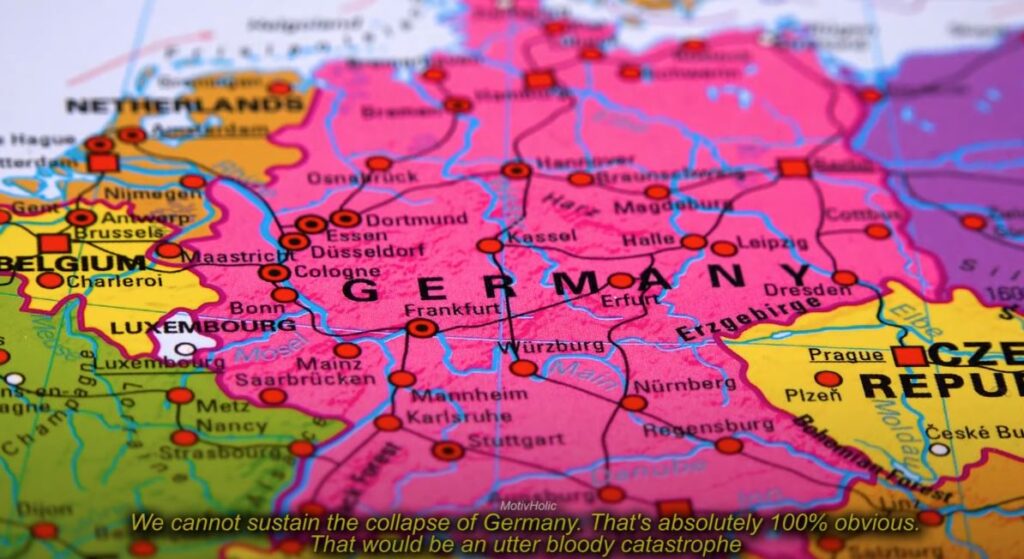Germany’s economy is facing significant challenges, with bankruptcy filings reaching a 10-year high in July.
District courts recorded 4,007 bankruptcies, marking a 19.2 percent increase from the previous year, according to the Federal Statistical Office.
This surge highlights ongoing economic pressures despite government efforts to stimulate growth.
Unemployment has also risen sharply, approaching levels not seen in a decade. The number of unemployed stands at 2.98 million, up 170,000 from last year, with 125,000 layoffs announced since July 1, as reported by the Initiative Neue Soziale Marktwirtschaft.
Federal Employment Agency head Andrea Nahles anticipates the figure will exceed 3 million in August.
Economic output revisions paint a grim picture of contraction. For 2023, growth was adjusted to -0.7 percent from an initial -0.1 percent estimate, and 2024’s figure was revised to -0.5 percent from -0.2 percent, per the Federal Statistical Office. The first quarter of 2025 continues to show negative growth.
Industrial production dropped 1.9 percent in June, hitting its lowest point since the coronavirus pandemic. Sectors like chemicals, mechanical engineering, and automotive manufacturing have been hit hardest.
These declines come amid Chancellor Friedrich Merz’s earlier pledge for a summer turnaround through tax relief, reduced bureaucracy, and major investments.
Merz’s administration unleashed nearly a trillion euros in debt for infrastructure and defense to jumpstart the economy. However, business leaders argue that without deep structural reforms, these measures fall short.
A summit with top corporations in July promised hundreds of billions in investments, yet economists warn of continued crisis without changes.
CEOs are voicing urgent calls for deregulation to counter overregulation’s harms. Belén Garijo, CEO of Merck, stated that Europe must adapt to realities or lose industrial leadership due to excessive rules and stagnation.
Ryanair’s Eddie Wilson criticized Germany’s high fees and taxes, leading to reduced flight offerings in major cities.
Mercedes boss Ola Källenius specifically urged the government to push for weakening EU climate goals in alliance with Paris, Rome, and Warsaw.
This reform is seen as essential to ease burdens on industry. Such demands reflect broader frustrations with policies that hinder competitiveness.
Clemens Fuest, president of the ifo-Institute for Economic Research , advocated for a comprehensive reform package across departments. This includes capital market deregulation, increased startup financing, simplified tax laws, and administrative digitization.
Wolfgang Große Entrup, head of the German Chemical Industry Association, pressed for immediate cuts to paperwork by 25 percent. He warned that the world will not wait for Germany to act.
Bureaucracy alone costs companies 146 billion euros annually, with employees spending 22 percent of time on administrative tasks.
Arndt G. Kirchhoff, a business association president, highlighted excessive bureaucracy, high energy costs, taxes, and social contributions as key burdens.
Within the CDU, General Secretary Carsten Linnemann acknowledged missteps in a letter to members. He admitted frustrations over issues like electricity taxes and judicial elections. Linnemann reflected on the country’s mood, noting it has not improved as hoped in the government’s first 100 days.
A Forsa survey reveals 62 percent of Germans fear further economic decline. The Alternative for Germany (AfD) continues to surge with promises of improvement, while the CDU/SPD coalition engages in anti-democratic lawfare as Germany’s economy slumps.
Read the full article here


